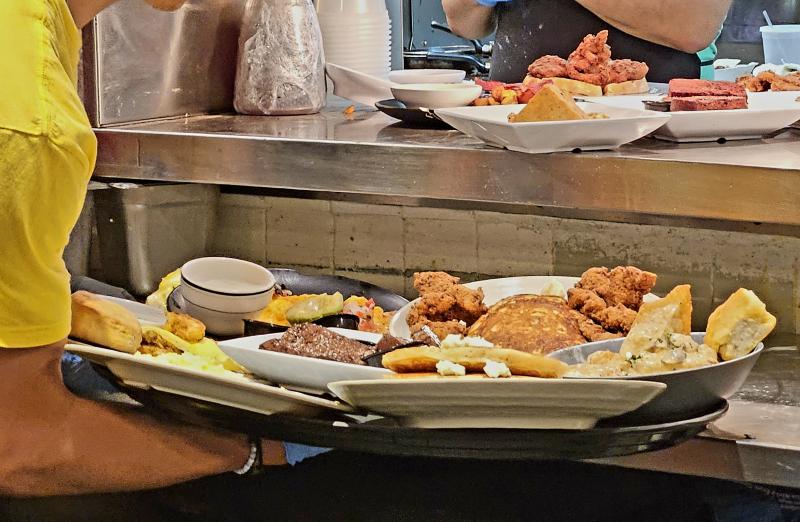Managing talent and ego in the kitchen – and elsewhere
I’ve been getting a lot of emails and comments recently about “Ciao House,” celebrity chef Alex Guarnaschelli’s latest reality show on FoodTV. The concept is similar to the Netflix “Pressure Cooker” show last year (in which Delaware Chef Robbie Jester prevailed, by the way). In “Ciao House,” a number of chefs (and a few chef wannabes) live together, cook together and compete on assigned tasks. Though they form alliances and become friends during the process, the kicker is that they have to vote off one of their compatriots at the end of every episode. If you like cooking and kitchen exploits, the real tension makes for good TV.
I’ve been enjoying a bit of back-and-forth with Chef Alex centered around one of the contestants who immediately distinguished himself from the others by stating that he doesn’t “like to melt cheese on top of things.” Mind you, this show is taped in Italy, and it’s all about Italian food. This otherwise talented young guy stuck to his rather bizarre culinary convictions throughout the series, and though he didn’t win, he was one of the finalists.
The online discussion involved chefs who cook for themselves rather than for their guests. I opined that the rogue toque would be successful only if he opened his own restaurant and created a following that appreciated his offbeat approach to cheffing. With that, the subject turned to ego-related issues in commercial kitchens, many of which are the primary factor in battles between front-of-house (servers) and back-of-house (cooks). Ask any restaurateur: These festering battles are not uncommon.
Discovering the reasons behind these issues can stir up emotions when chefs’ egos are bruised or challenged. Restaurateurs have to figure out ways to control and perhaps even channel these skirmishes into the smooth operation of their restaurant. An example of this can be seen on a surprising number of “Restaurant Impossible” episodes, where celebrity chef Robert Irvine attempts to rescue a failing eatery. In so many cases, we’ll see a server return a dish to the kitchen with a customer complaint (too hot, too cold, too salty … you name it). Rather than remaking the dish and moving forward, the chef or cook will lash out at the server (often within earshot of the dining room). The server, who is positioned squarely in the line of fire between the cook and the patron, is understandably hurt and angry.
In my experience, much of that occasional hubris in the kitchen can be traced back to the very concept that started this whole article: FoodTV and the celebrification (my word, but you get what I mean) of chefs and some kitchen personnel. Indeed, FoodTV and the rest have done a great job highlighting the talents of many exceptional cooks. But at the same time, they have also contributed to severely inflated egos.
The day-to-day operation of an actual restaurant kitchen is not what we see on reality TV. Very little of what a TV producer needs for the camera will work on a busy weekend night, when all that matters is getting orders in and out as quickly as possible – while maintaining quality, safety and presentation. Not a small task.
When interviewing chefs, restaurateurs and the like for this column and on my Beach Eats radio show, I have sometimes compared professional cheffing to what I did in my former life as a recording studio owner and recording engineer. In the studio, we combine different personalities (musicians, songwriters, producers and technical people) in an attempt to create one final product that everyone likes. Not all that different from a restaurant kitchen, including the screaming fights, snide comments and ego-based outbursts.
As a music engineer and occasional producer, I would try to guide the focus to one common goal – a final result of which we could all be proud. Similarly, the best restaurateurs and/or managers often use that same strategy. They create standards and benchmarks to hold the chefs (producers) and line cooks (musicians) accountable; they respect everyone’s feedback while still plodding toward the final result, a skillfully prepared dish (or an impressive musical recording).
Talent, passion, and yes, ego, are necessary ingredients for cooking up a successful restaurant business. Wise restaurateurs know that they cannot do it by themselves. Good, bad or indifferent, they need that team in order to do what they do. The answer in any creative endeavor is to gently guide any number of disparate talents toward an outcome that benefits everyone.


















































